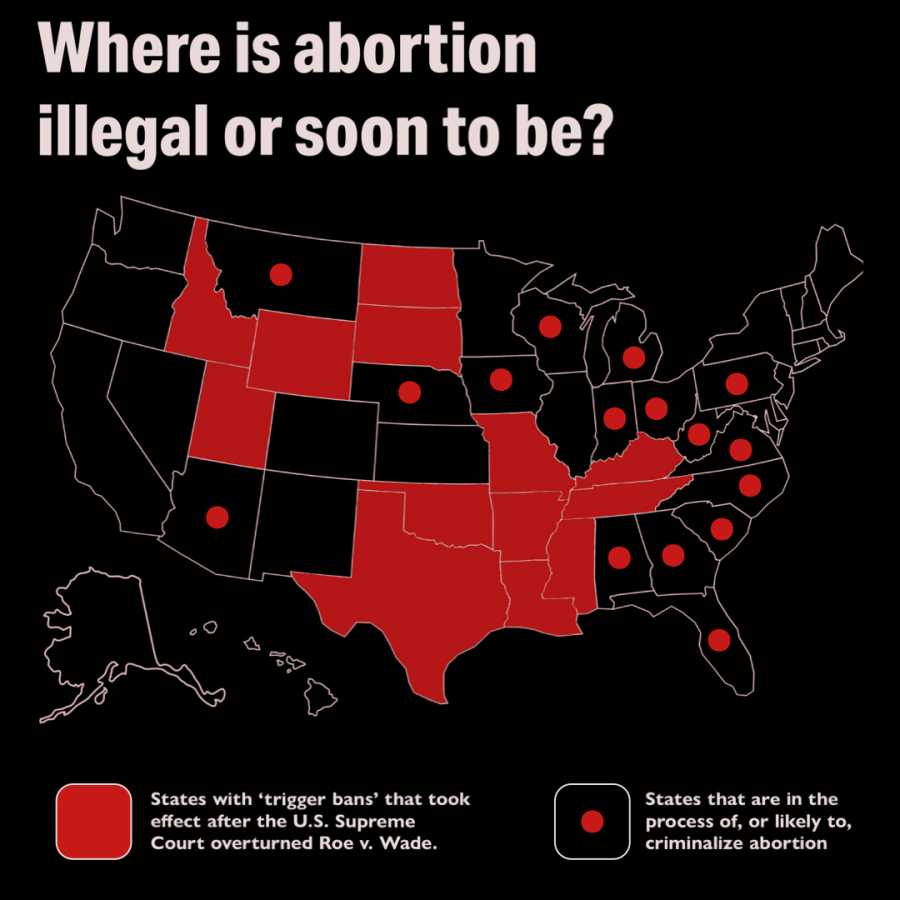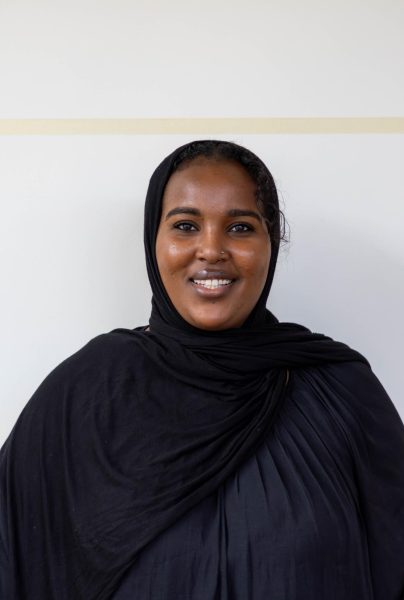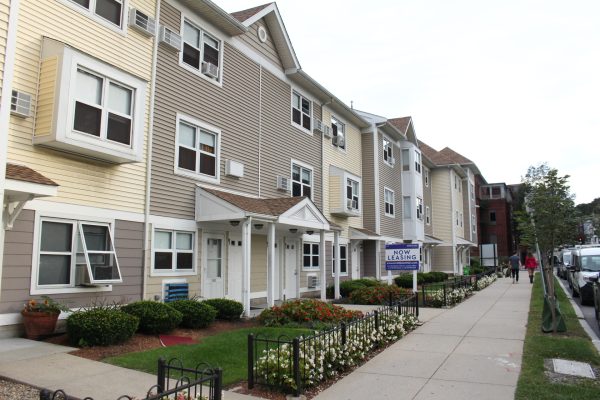Abortion bans trigger double lives for some Northeastern students
Source: https://www.forbes.com/sites/alisondurkee/2022/08/25/as-3-more-abortion-trigger-bans-take-effect-heres-where-laws-are-being-enforced—and-where-theyve-been-blocked/amp/
October 31, 2022
With a university lining every other block, Boston is a familiar, well-worn stomping ground for over 150,000 students. But this summer, after the Supreme Court overturned Roe v. Wade, the city’s college-age population returned to their dorms with a new sense of uncertainty looming over their lives and rights.
Massachusetts sits at a unique position as a sanctuary for abortion rights. In the hours after the Supreme Court’s Dobbs v. Jackson Women’s Health Organization decision, Gov. Charlie Baker signed an executive order to protect access to reproductive health care services across the state. A month later, Baker signed legislation that codified several measures of the order to protect access to reproductive health services in Massachusetts.
Northeastern’s Boston campus serves thousands of students who are affected by the overturning of Roe v. Wade. However, for those students who come from communities that continue to resist abortion rights — like the 13 states that pledged their own “trigger bans” following the Supreme Court’s ruling — returning to Boston has come with an especially swollen sense of conflict, separation and powerlessness.
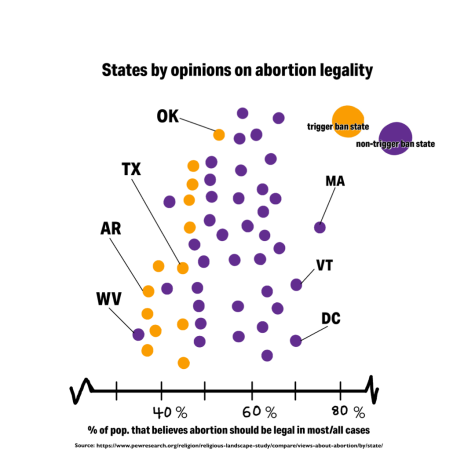
Eshani Talwar, a second-year mathematics and business administration combined major, was home in the suburbs of Dallas when the United States Supreme Court voted to overturn Roe v. Wade.
“People were happy, almost numb to it. There was a lack of backlash because we had gone through this before. We knew what was coming,” she said, reflecting on her community’s reaction to the news. “Because the ‘Heartbeat Bill’ passed in 2021, I felt less of an effect this time around. Yes, we protested and wanted our voices to be heard, but at that point, protesting could only do so much. How many more of our rights can be taken away after what already has been?”
First-year pharmaceutical science major Elizabeth Scholl said she felt this same feeling of powerlessness. Growing up in northern Alabama, Scholl said she has experienced division between the liberal tendencies of her urban neighborhood and the conservative viewpoints that dominate the state’s rural areas. In the South, she said the Supreme Court’s decision wasn’t quite the bombshell to her community that it was to many Boston residents.
“That day in June, I felt like everyone around me too
k the peaceful approach: being ambiguous and subtle during these ‘trying times,’ as seen on social media over and over again,” Scholl said. “No one spoke outright about it because no one was surprised.”
For some students, like second-year mathematics and business administration combined major Jordan Kreisler, Boston was a distinct change of pace from their historically conservative hometowns.
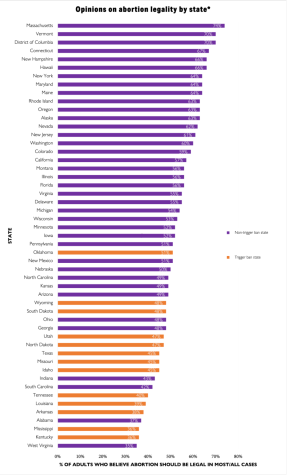
“The strictness of a Catholic county made every conversation about abortion, even contraceptives, so hush-hush,” Kreisler said of Waukesha, Wisconsin. “There were always undertones of ‘the dying children’ and a regression away from feminism.”
The conversation around abortion rights in Boston, however, took the opposite stance from Waukesha for Kreisler.
“It’s interesting, now, being able to meet people and not have to shield your thoughts or hide from a pro-life reaction,” Kreisler said.
Talwar noticed a similar change when first coming to campus.
“Coming to Northeastern reaffirmed that I can value different beliefs and have educational discussions. Having an opinion in Dallas was based on generational thinking — not backed by research — and defended with strong-arming,” she said. “It wasn’t anything worth arguing with.”
While successive pledges to anti-abortion legislation became a knee-jerk reaction for many of the states these students call home, thousands of Boston residents gathered around the State House to protest the Supreme Court’s decision in the hours after it passed in June. Yet, while massive in size, this showcase of support for abortion rights took place in a state that had already declared its commitment to protecting those rights.
Following the decision, many students also took to social media, which has become a standard platform for activist mobilization and commentary, or at least the performance of it.
“Sometimes you just have to ask yourself: ‘Do you know where we are? Who are you actually reaching?’ At what point is your voice just an echo to the people in this state that already agree with you?” she said.
The ubiquitous pro-choice sentiment in Massachusetts stood out to students who spoke to The News who are from towns that couldn’t expect thousands of abortion rights protestors to file through their city centers. Now well into the school year on campus in Boston, many of these students are living a very different post-Roe reality than that of their family and peers who still reside in their hometowns.
“People like me and my friends will be okay,” Scholl said. “It is incredibly disheartening to know that this will only compound problems in Alabama — keep women under the poverty level and ban strictly safe abortions, not all abortions. This is going to hurt a lot of people.”
For students like Talwar, Scholl and Kreisler, navigating a post-Roe society isn’t as simple as posting or protesting. As states committed to anti-abortion legislature overturn rights once protected by Roe v. Wade and criminalize abortion, some Northeastern students find themselves at the center of a complicated, national tug-of-war.
“Even if the state doesn’t have protection, I know my family and I have the means to access resources if needed,” Kreisler said. “It breaks my heart that others cannot say the same.”


